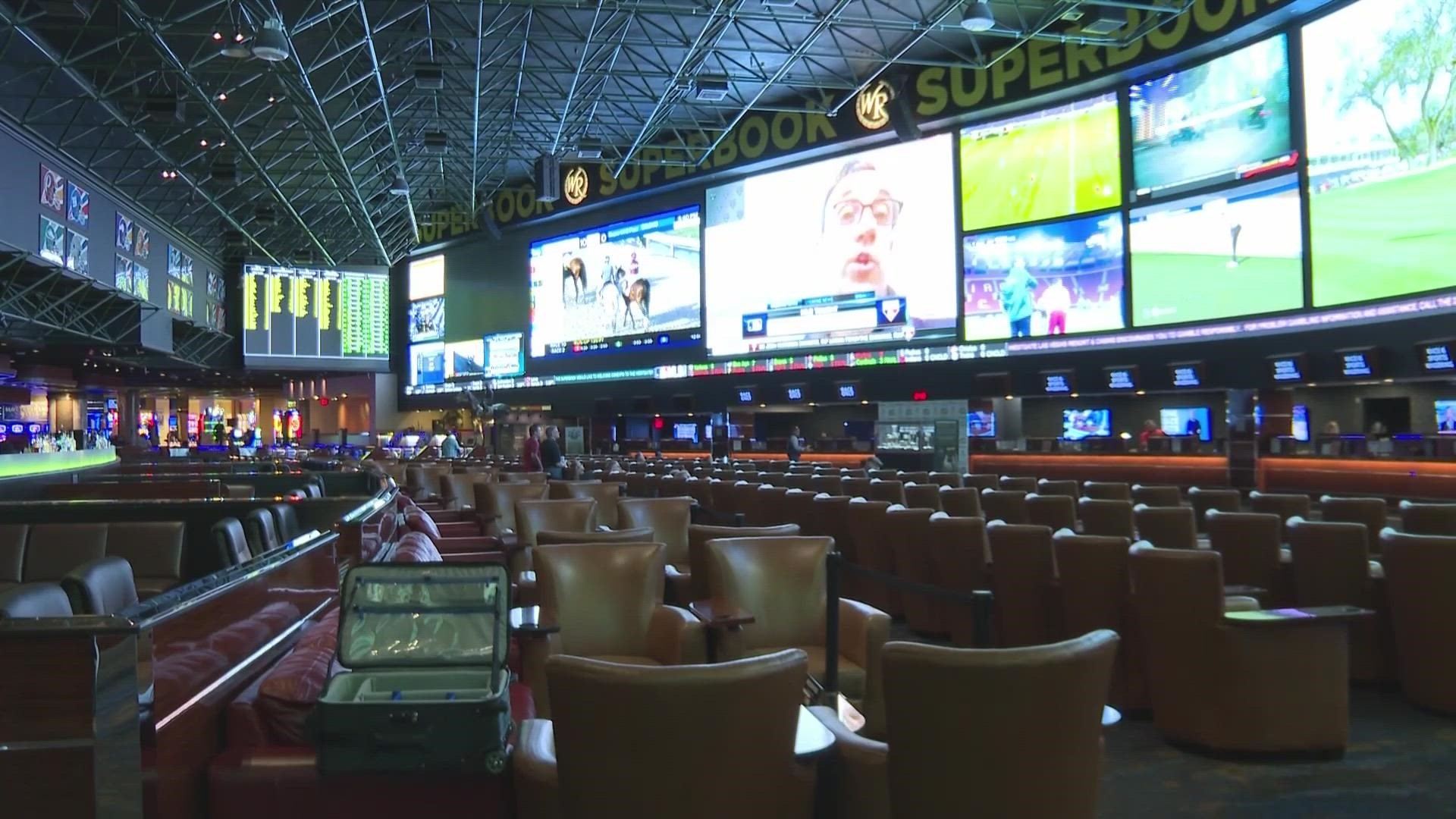TOLEDO, Ohio — Ohio and the city of Toledo stand to benefit financially once sports betting goes live statewide next year, but there could be some negative consequences.
In 2017, the Ohio Department of Mental Health and Addiction Services determined up to 900,000 Ohioans met the criteria for gambling addiction. The number of people considered "at-risk" for gambling disorder nearly doubled from 5.7% to 10.3% from the same study conducted in 2012.
Steve Kapela, manager of gambling treatment and prevention at the Zepf Center, said there are 43 people in the gambling program today. He thinks the number of problem gamblers could increase once sports betting begins Jan. 1.
"You used to have to go somewhere to gamble," Kapela said. "Now it’s sitting on the couch with you, you take it to bed with you. People will be gambling more and more. If [problem] gambling rates doubled in less than 10 years, I think we’ll see an even larger increase because of the availability of sports betting."
Ohioans will be able to place bets at casino sportsbooks and restaurants with kiosks, but also on their devices using a variety of apps. Hollywood Casino Toledo is building a sportsbook and will also offer sports betting via the Barstool Sportsbook app.
There are also plans for a Barstool restaurant to open later in 2023.
Kapela outlined several warning signs of gambling addiction, including:
- Borrowing money to gamble.
- Spending bill money.
- Creating a "secret life" where some people are allowed to know about your gambling, but some are not.
- Exaggerating wins and minimizing losses.
- Chasing your losses by continuing to bet.
Kapela calls problem gambling the "hidden addiction" because unlike problems with drugs or alcohol, there are not many outward signs.
"I’ve had gamblers in my office who, stone cold sober, lost $60,000 in an afternoon," he said. "And no person who struggled with a chemical dependency could spend money like that. And they don’t smell like gambling or stumble around or slur their words or have burn holes in their clothes. They were nice, normal people whom you otherwise wouldn’t even know [had a problem]."
Kapela emphasized neither he nor the Zepf Center are anti-gambling, but he wants people who choose to participate to do so responsibly. He said you should only bet what you can afford to lose and only use discretionary funds.
"The real at-risk populations are the ones who are on the edge right now," Kapela said. "People who are making it by, but struggle once in a while. If they pick up this new form of sports gambling, those are the people who will go over the cliff."
Toledo Mayor Wade Kapszukiewicz, an avid sports fan, is supportive of the concept of legal sports betting, although doesn't plan to place any bets himself. He said Ohio legalizing it felt "inevitable," especially once it was signed into law in Michigan in 2019.
He said Toledo could be positioned to benefit more than any other Ohio city from the revenue expected to be generated.
"I’ve heard stories of sports fans who would drive just over the line to connect to a cell tower somewhere in Bedford and place bets that way," Kapszukiewicz said. "So who knows how much of a negative economic impact that was, but it has to be real. There’s no question this will produce positive economic benefits for Toledo."
According to the Associated Press, over $125 billion has been wagered in the United States since a 2018 Supreme Court ruling made it legal. Total betting revenue for Michigan was reported at $292.2 million in 2021.
While the mayor embraces sports betting coming to Ohio, he also shares Kapela's concerns.
"I think it can be a fun, positive option for people," he said. "But we want to make sure folks don’t overdo it. Lets try to do it smartly and thoughtfully and if you feel yourself spending money you don’t have, please reach out to the resources that exist."
If you or someone you know is struggling with gambling addiction, the Zepf Center in Toledo has treatment options available here. You can also call the Ohio Gambling Helpline at 1-800-589-9966.
RELATED VIDEO

